Five talking points from the women's elite World Championships 2021 road race
The Netherlands finally lose their grip on the rainbow jersey, fantastically dramatic route and more from the first elite road race
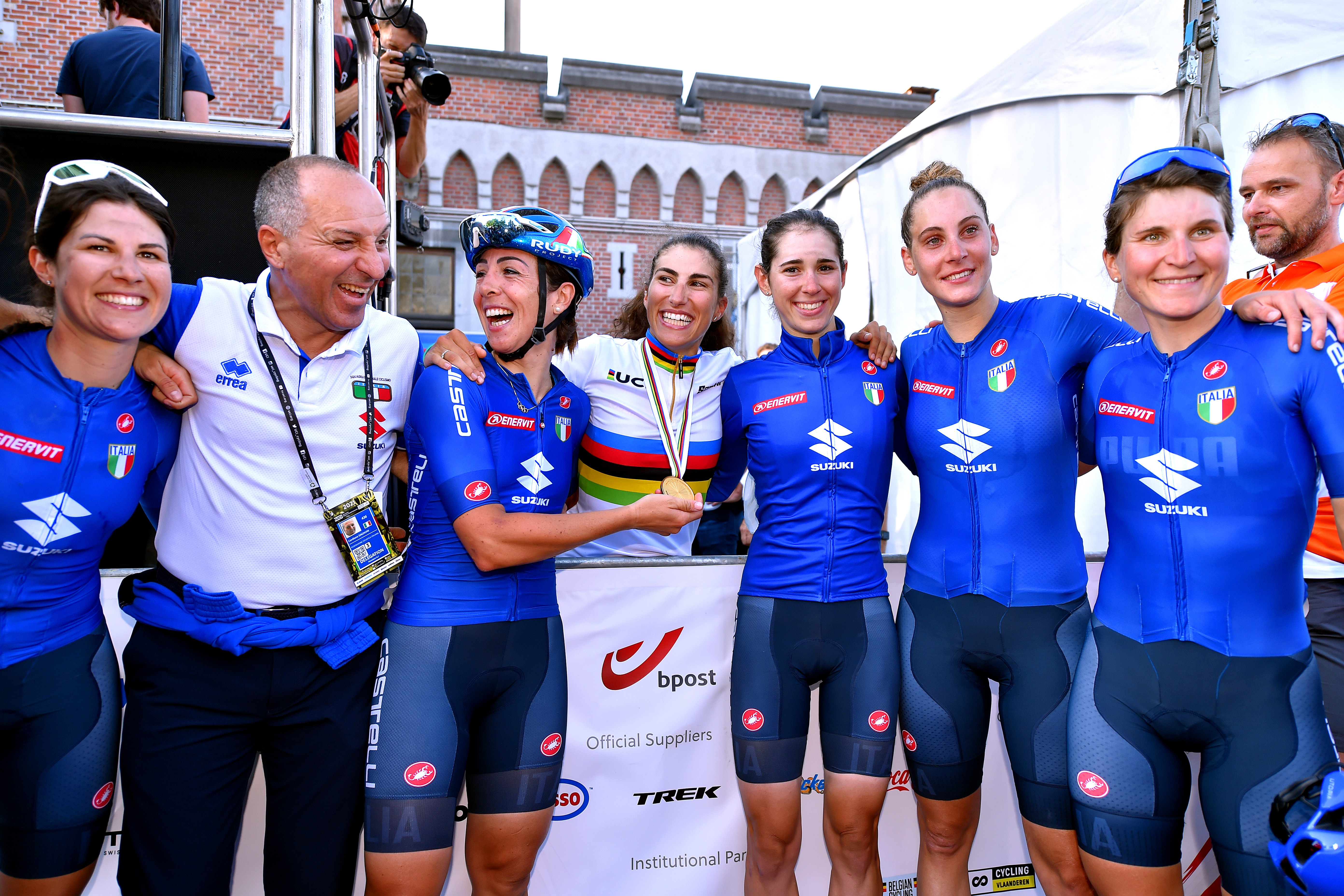
The latest race content, interviews, features, reviews and expert buying guides, direct to your inbox!
You are now subscribed
Your newsletter sign-up was successful
Balsamo delivers a shock win
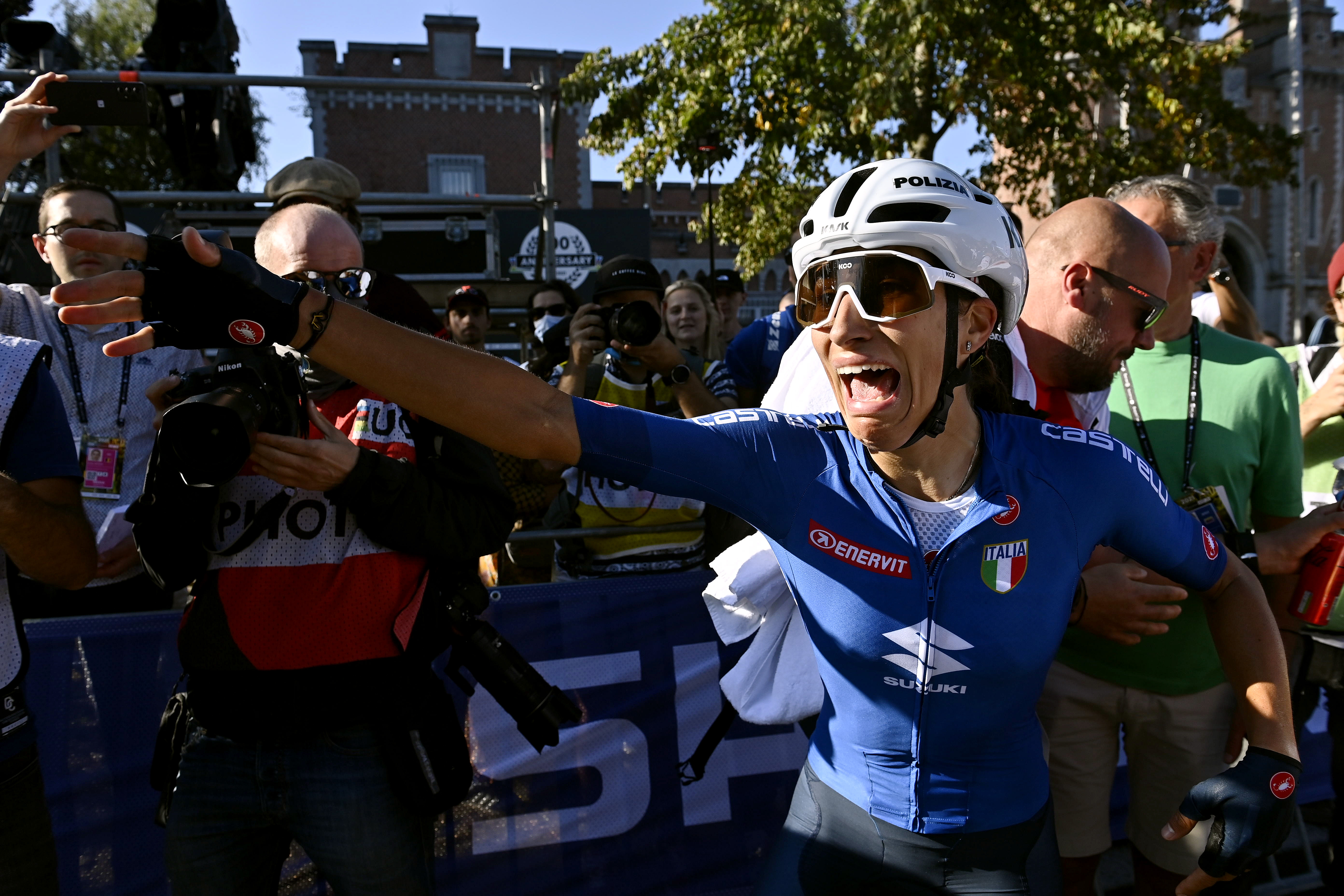
The peloton has a new world champion, and it's not someone who many picked out as a possible winner.
Elisa Balsamo is one of the rising stars of cycling. Her sprinting ability has been apparent for a few years now, from all the way back in 2016 when she was crowned world junior champion in a bunch sprint in Qatar. More recently, she’s been up there in some of the tougher classics, last spring registering a fourth-place finish at Gent-Wevelgem and a podium at Brabantse Pijl — a race which shares some of the climbs used today.
Still, as a 23-year-old whose biggest senior win before today was a stage of last year’s Ceratizit Challenge by La Vuelta, a World title is a huge leap. In one ride, she has grown from being an emerging talent to being one of the peloton’s biggest stars.
The result also more than makes up for her misfortune at the Olympics during the summer, where crashes in both the Madison and the omnium ruled her out of medal contention.
If she was helped today by managing to go under the radar, she’ll never again enjoy such a luxury — especially for the next twelve months, which she’ll spend riding in one of cycling’s most revered and eye-catching items of clothing, the rainbow jersey.
Inquest begins as Dutch fail to win gold
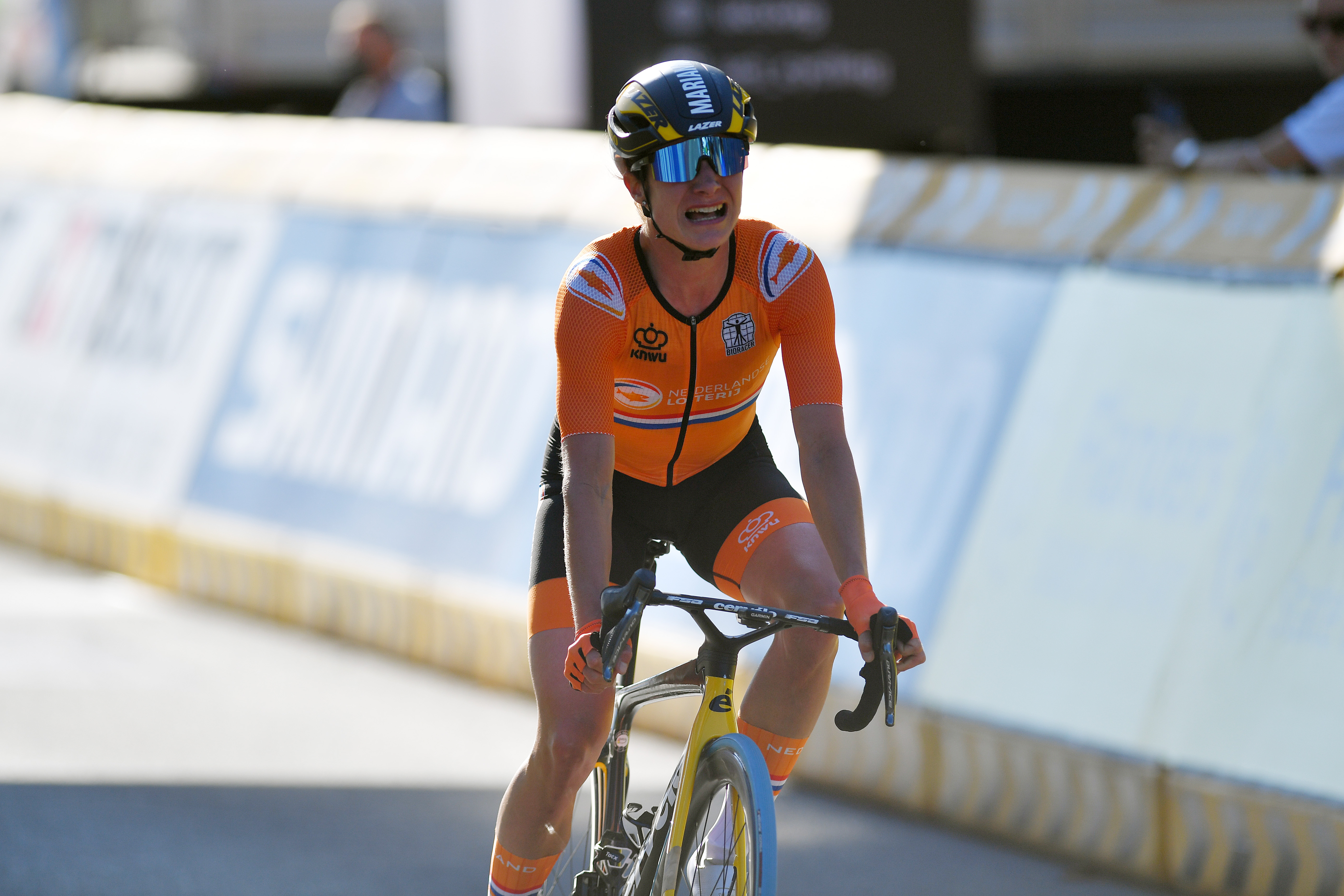
Given the stunning strength of their team, and the fact they have won each of the last four editions of the women’s elite road race, there will inevitably be an inquest into how the Dutch failed to win gold.
But did they do much wrong? Once the race reached the finishing circuit in Leuven, they attacked relentlessly, with Lucinda Brand, Ellen van Dijk and Annemiek van Vleuten in particular all shooting off the front on multiple occasions, and in a strategy that was by the textbook, with one rider setting a fierce pace on the climbs, and then another counter-attacking after cresting while everyone tried to catch their breath.
The latest race content, interviews, features, reviews and expert buying guides, direct to your inbox!
When none of those attacks stuck — which perhaps was as much a result of the parcours not being hard enough as it was a lack of explosiveness in the attacks — the Dutch still had Marianne Vos’ sprint to fall back on, and the three-time winner came very close to delivering.
But as Vos’ tears at the finish showed, this Dutch team is not interested in second-place, and the result will be a crushing disappointment.
If there’s one obvious criticism that can be made, it’s that the team did not ride the Flandrien circuit that preceded the Leuven finale hard enough. Italian Elisa Longo-Borghini expressed her surprise at the lack of Dutch attacks during this phase of the race, and this could be one of the reasons why such a large group remained together on the final lap in Leuven, and why their rivals still had the legs to cover the Dutch attacks.
It’s going much too far to talk about the end of an era, but with Anna van der Breggen and Chantal van den Broek-Blaak both retiring, and today’s disappointment following their failure to win the Olympics, the Dutch no longer appear as invincible as they have in recent years.
Italians get their strategy spot on
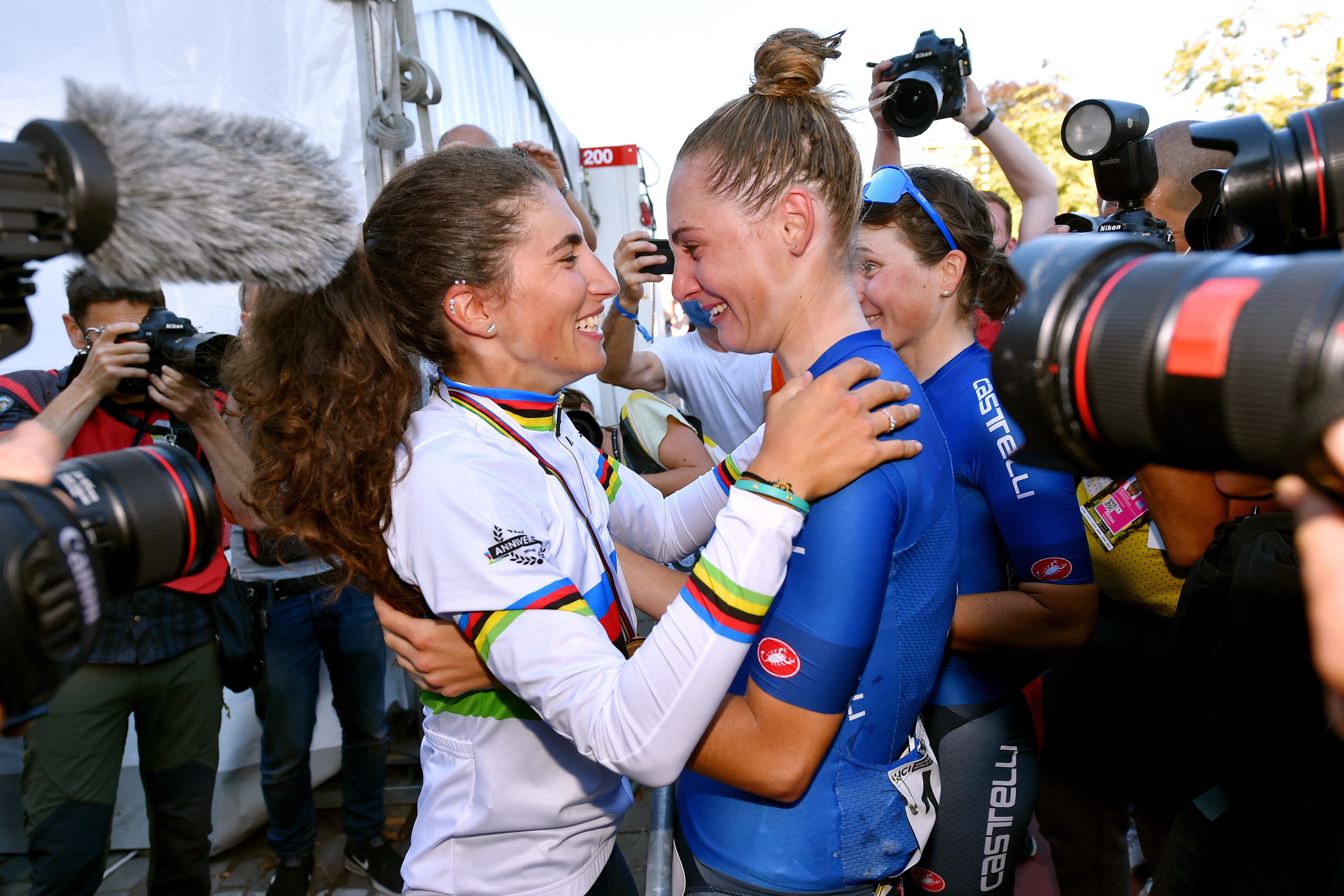
For all the talk of the Netherlands’ enviable strength-in-depth, there were nearly as many Italian riders in the finale as Dutch.
While seven of the 31-woman group that remained at the front of the race in the lap were Dutch, five were Italian, and the nation made those numbers count by delivering Balsamo with a brilliant lead-out to win gold in the sprint.
Unlike the Dutch, Italy resisted making many attacks, instead covering moves and keeping their powder dry. Maria Giulia Confalonieri did get into a number of moves — and was very impressive in doing so, managing to glue herself to the wheel of more recognisable riders Kasia Niewiadoma (Poland) and Ellen van Dijk (Netherlands) over the final climbs — but was only ever on marking duties, as Italy were all in for a sprint finish.
Even the irrepressible Elisa Longo-Borghini kept a lid on her attacking instincts, instead saving herself to deliver a sublime lead-out for Balsamo in the sprint. She set such a pace that her, Balsamo and Vos opened up a gap over the rest of the group big enough to rule every other rider out of contention even before the sprint had begun, and then retaining that pace for long enough so that Balsamo wasn’t forced to start her sprint too early.
Italy’s faith in Balsamo’s sprint turned out to be justified, as, against what many would have expected, she managed to pack more of a kick than Vos. It was an exemplary tactical display, and delivered the nation its first elite women’s road title in ten years.
Very strong Niewiadoma wins bronze
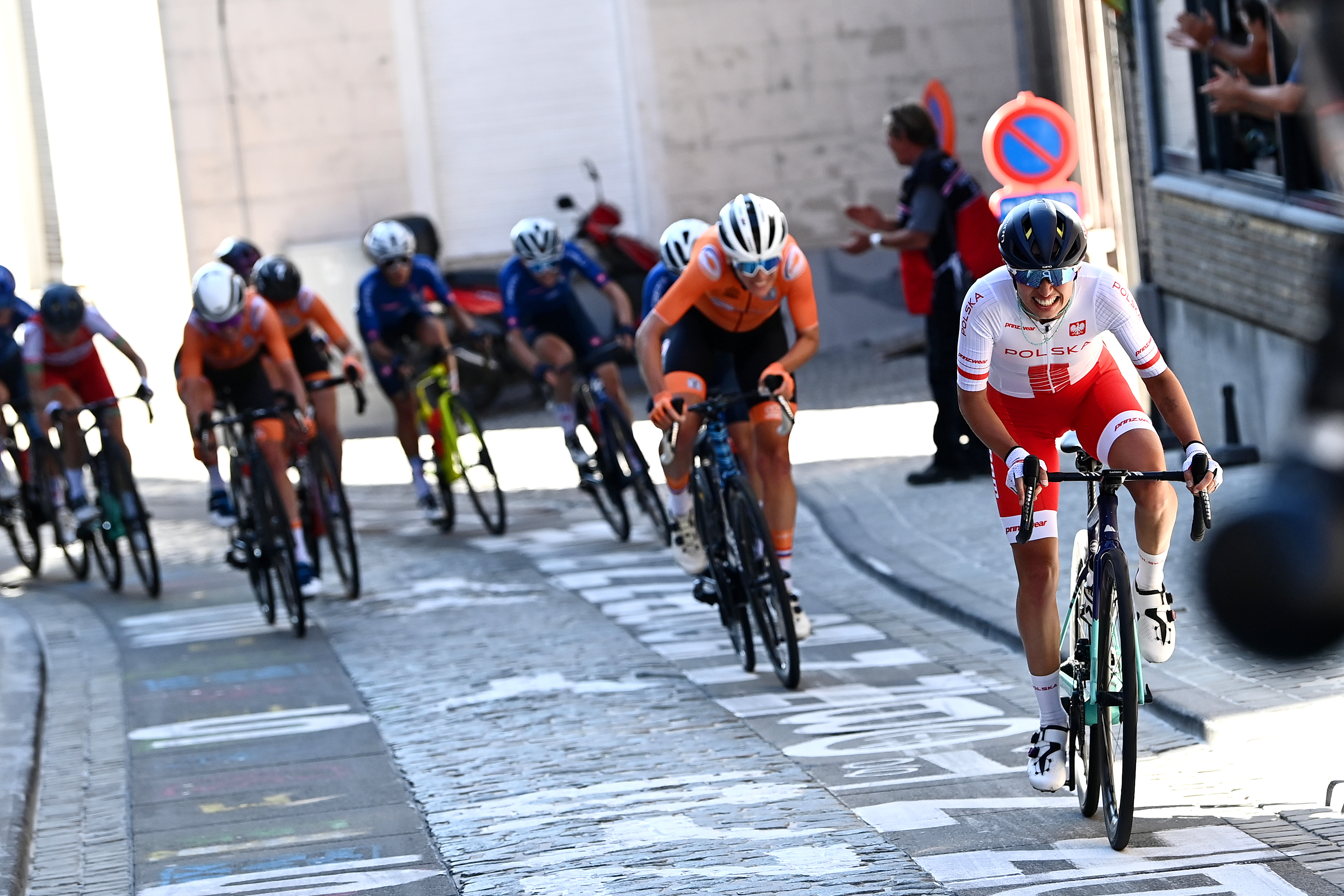
One rider who will have longed for a tougher circuit was Kasia Niewiadoma (Poland), who appeared to be the strongest rider over the most selective climbs.
The Wijnpers was the toughest climb in the finishing circuit, and on each of the last two times up it, Niewiadoma led the peloton. On the first occasion she managed to reduce the lead group to just sixteen riders, despite having to check herself at the bottom after flying around the corner on to it.
Then on the final time up, she got a bit of a gap along with Van Dijk and Confalonieri, and might have stayed away to the finish had the Dutch not done there all to close the trio down as they clearly did not trust Van Dijk in the sprint against the other two riders.
Even after these moves, and despite not being noted for her sprint finish, Niewiadoma still managed to sprint for a bronze medal in the final ahead of more recognised fast finishers like Arlenis Sierra (Cuba), Lisa Brennauer (Germany), Coryn Rivera (USA) and Lotte Kopecky (Belgium), a sign of just how strong her legs were today.
The rider from Poland's long, two-year wait for a win goes on, but she will nevertheless surely be delighted to win what was her first ever World Championships medal.
Route produces brilliantly tense racing
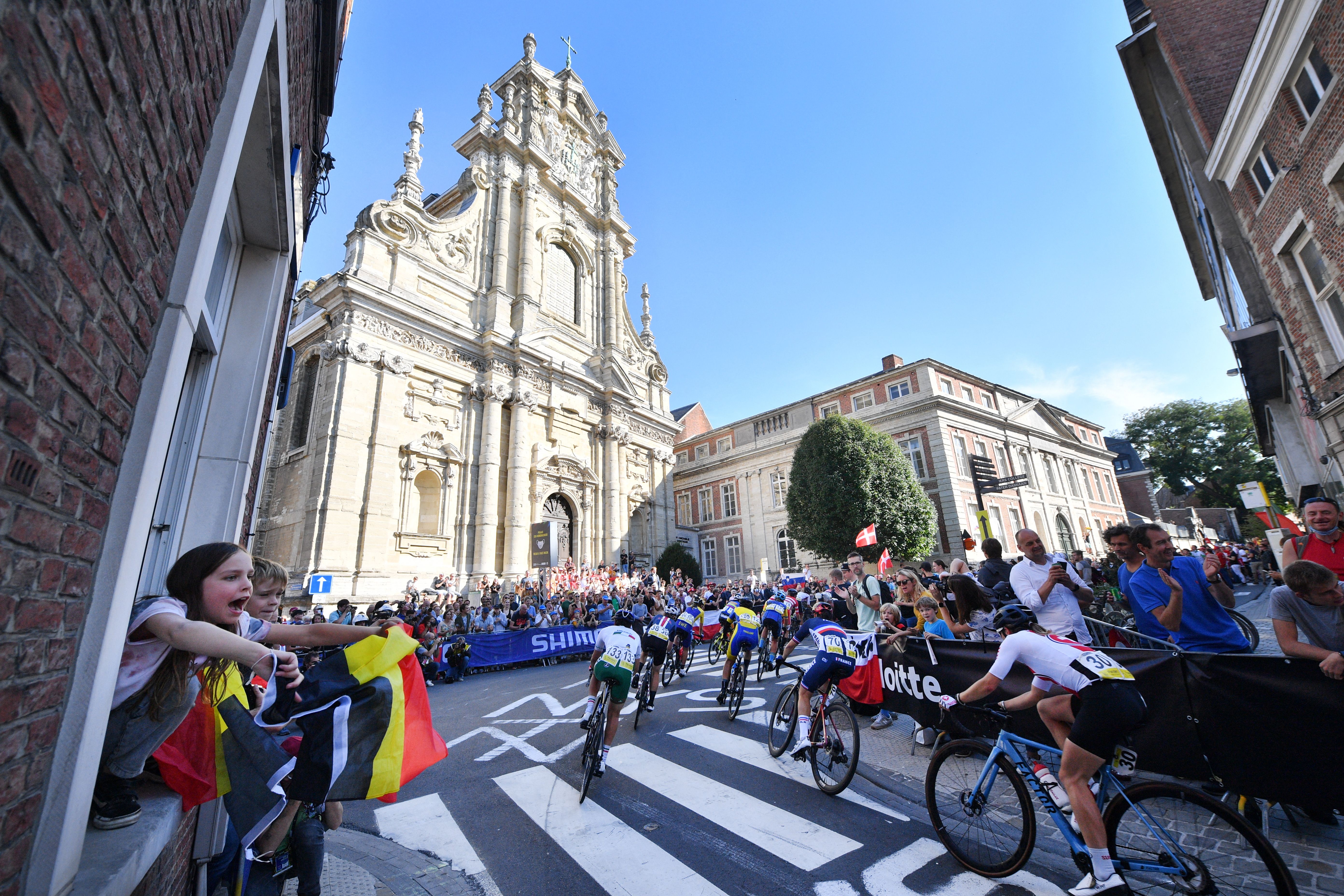
The race might have ended in a bunch sprint of a few dozen riders, but this fails to tell the story of just what an exciting race this was.
For a race held in Flanders, this had exactly the pattern of racing that makes racing in this region so exciting. The many short, punchy climbs the riders had to get over were never quite enough to make a race-winning selection stick, but they did make for thrilling racing, and the threat of a group managing to do so made for an incredibly tense race.
A few times a group did manage to get a little bit of daylight (or, in the case of Spain’s Mavi Garcia, an individual, who for a while threatened to solo all the way to the finish), but each time it was eventually brought back, in a race of ebb and flow.
As a result, it was almost impossible to call a winner for most of the race, in stark contrast to recent Worlds, which have often been won by long-range solo attack with huge time margins.
Perhaps it could have been more exciting had more attacks been made earlier in the race, particularly during the circuit in Flanders, but then again this might have meant there were less riders in contention during the finale, which was part of what made this edition such an exciting race.
All in all, this was one of the tensest women’s Worlds races in recent years, and another showcase for what has been an excellently designed Flanders World Championships.
Stephen Puddicombe is a freelance journalist for Cycling Weekly, who regularly contributes to our World Tour racing coverage with race reports, news stories, interviews and features. Outside of cycling, he also enjoys writing about film and TV - but you won't find much of that content embedded into his CW articles.